Battles at sea have been fought for over three millennia, and the fight for naval supremacy has proved crucial to the fortunes of many of the most famous civilizations in world history. The following 10 books offer invaluable insight into a wide range of topics on the fascinating subject of naval history, covering everything from some of the most impressive navies and significant naval campaigns of the past to more niche topics like a typical British sailor’s diet in the early 19th century.
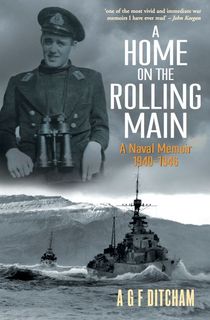
A Home on the Rolling Main
As part of his role as a midshipman, British naval wartime officer Tony Ditcham was required to keep a daily journal. This forms the basis of his memoir, A Home on the Rolling Main, which is an evocative first-hand account of life at sea during World War II, notable for its candor, humor and vivid realism.
Ditcham joined the Royal Navy as an 18-year-old in 1940 and served on the front line for six years until the Japanese surrender in 1945. During that time, he saw action in many key Allied naval operations including the Arctic convoys and the D-Day landings. A Home on the Rolling Main recalls these major events in gripping detail, but Ditcham’s memoir also offers a glimpse into the more tedious aspects of day-to-day life onboard the ship.
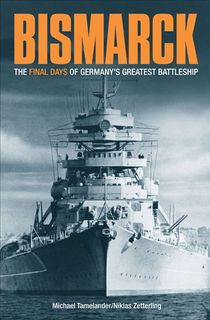
Bismarck
Michael Tamelander and Niklas Zetterling’s Bismarck tells the story of the famous World War II battleship, regarded as Nazi Germany’s best hope of disrupting the Allied convoys in the North Atlantic. The book focuses, in particular, on the dramatic events in May 1941 which led to the German vessel’s demise at the hands of the Royal Navy.
The authors have painstakingly researched their subject, filling in much of the essential historical background and drawing on the stories of survivors from both sides to produce a vivid hour-by-hour account of the Bismarck’s final days. Tamelander and Zetterling’s “exciting story-telling” serves as "a well crafted epilogue to one of World War II’s most notorious naval engagements” (International Journal of Maritime History).
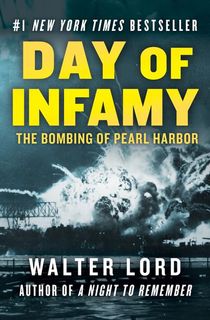
Day of Infamy
Walter Lord’s classic account of the attack on Pearl Harbor in December 1941 remains essential reading for anyone interested in learning more about one of the darkest days in US naval history. In order to produce this detailed reconstruction of events on that fateful day, Lord interviewed hundreds of eyewitnesses including, controversially for the era in which Days of Infamy was written, some of the Japanese pilots involved in the attack. The author also drew heavily on the letters and diaries of survivors to recount many individual tales of heroism and courage by members of the American armed forces. US historian Stephen E. Ambrose commented of Lord’s New York Times bestseller: “There have been many books on Pearl Harbor…but none of them have equaled Lord’s.”
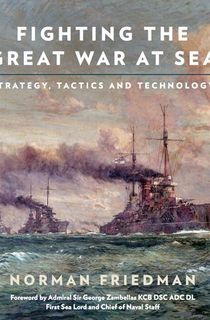
Fighting the Great War at Sea
Norman Friedman is an acknowledged expert in the field of naval history and brings all this knowledge to bear in Fighting the Great War at Sea. This impressively detailed and well-illustrated account of the battle for maritime supremacy during World War I offers a fresh perspective on the conflict by analyzing in depth the strategy and tactics of the various navies involved and examining how rapid developments in ship and weapon technology impacted the eventual outcome. The NYMAS Review hailed this book as an “immensely valuable work for anyone interested in the Great War at sea or in naval warfare in general”.

Barrow's Boys
Following the end of the Napoleonic Wars, the British Admiralty turned its attention to global exploration, in part as a way of keeping its top naval officers actively employed. As Second Secretary to the Admiralty for over 40 years, John Barrow was responsible for organizing these early 19th-century groundbreaking voyages of discovery. He was undeterred by a disastrous early mission to find the source of the River Congo, during which most of the expedition members died of yellow fever, and continued to promote British exploration on a grand scale, including missions to the Arctic and Antarctic regions.
Fergus Fleming’s Barrow’s Boys recounts the history of those perilous expeditions, producing a narrative which is described by Private Eye editor Ian Hislop as “absolutely gripping…part thriller and part black comedy”. Fleming’s engrossing account of events contrasts the frankly ludicrous lack of preparation for voyages into some of the most hostile environments on the planet with the bravery of the intrepid naval officers who were sent on them.
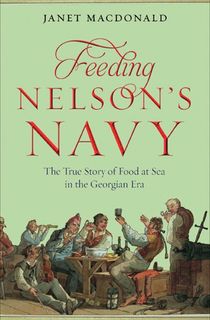
Feeding Nelson's Navy
Janet Macdonald’s highly original Feeding Nelson’s Navy delves into the fascinating question of just how the early 19th-century British naval administration fed a fleet of more than 150,000 sailors at the height of the Napoleonic Wars. Along the way, she disproves one long-held perception, namely that the food onboard at this time was so unrelentingly grim that most sailors suffered from serious dietary disorders such as scurvy. Whilst acknowledging that, on occasion, the system still went badly wrong, the author shows that by the late Georgian era sailors usually had access to a nutritious and varied diet that in many cases was better than the food they ate at home. Macdonald’s “excellent examination of this crucial aspect of British naval power” (History of War) even includes some recipes from the era for readers to try for themselves.

Six Frigates: The Epic History of the Founding of the U.S. Navy
As its title suggests, Ian W. Toll’s compelling account of the origins of the United States Navy focuses on the history of the original six frigates from the time that they were authorized by Congress in 1794 up to their crucial involvement in the war of 1812. In this “thoroughly readable book” (San Diego Tribune), the author throws new light on this key moment in US military history. Toll’s in-depth research into his subject is evident in Six Frigates, whether he is discussing the political machinations involved in getting the scheme off the ground or providing an in-depth description of the design and construction method for each vessel.

The Battle of Salamis
Salamis, off the coast of Greece, is widely regarded as the site of one of the most important naval battles in the ancient world. In The Battle of Salamis, Barry Strauss provides an enthralling and detailed account of the epic battle in 480 BCE between the Greek and Persian fleets. The Cornell University historian introduces his readers to all of the key figures involved in the battle and details the exceptional military strategy displayed by the Greek leaders that resulted in their ultimate victory. Strauss also makes a compelling case for the hypothesis that by halting the advance of the Persian Empire, the Greek victory changed the course of Western history forever.

The Fighting Temeraire
In 1805, the HMS Temeraire (the second British warship of that name) famously fought alongside Nelson’s flagship, HMS Victory, at the Battle of Trafalgar. The battle-scarred warship made her final journey to the scrapyard 33 years later, after decades of valiant service. The story of the famous ship’s demise captured the imagination of artist JMW Turner, and led him to immortalize the scene that day in one of his most iconic paintings, The Fighting Temeraire.
In his book of the same name, Sam Willis details the extraordinary story of both vessels named HMS Temeraire, whose combined history spanned the era when the British Navy was at the height of its powers from the Seven Years' War in the mid-18th century to the Napoleonic Wars in the early 1800s. The “absorbing and enjoyable” account (Sunday Times) covers the subject from a variety of different angles, including evocative descriptions of famous naval battles, an in-depth study of day-to-day life onboard ship and even, pleasingly, the story of Turner’s famous painting.

The Armada
First published in 1959, Garrett Mattingly’s The Armada (published in some countries under the title of The Defeat of the Spanish Armada) is still acclaimed today as one of the definitive works on events surrounding the famous 1588 naval campaign. Mattingly won a Pulitzer Prize for his engaging account of the English fleet’s defeat of the Spanish Armada, which is regarded as one of the pivotal moments in 16th-century European history.
The critically acclaimed US historian skillfully sets the scene by explaining the political background of the conflict between England and Spain and its wider implications for the continent of Europe as a whole, before describing the naval campaign itself in breathtaking detail. According to The New York Times, Mattingly’s account is “so skillfully constructed that it reads like a novel”, making it perfect for scholars and amateur historians alike.
This post is sponsored by Open Road Media. Thank you for supporting our partners, who make it possible for The Archive to continue publishing the history stories you love.




